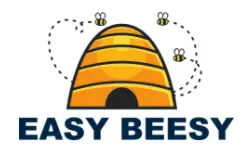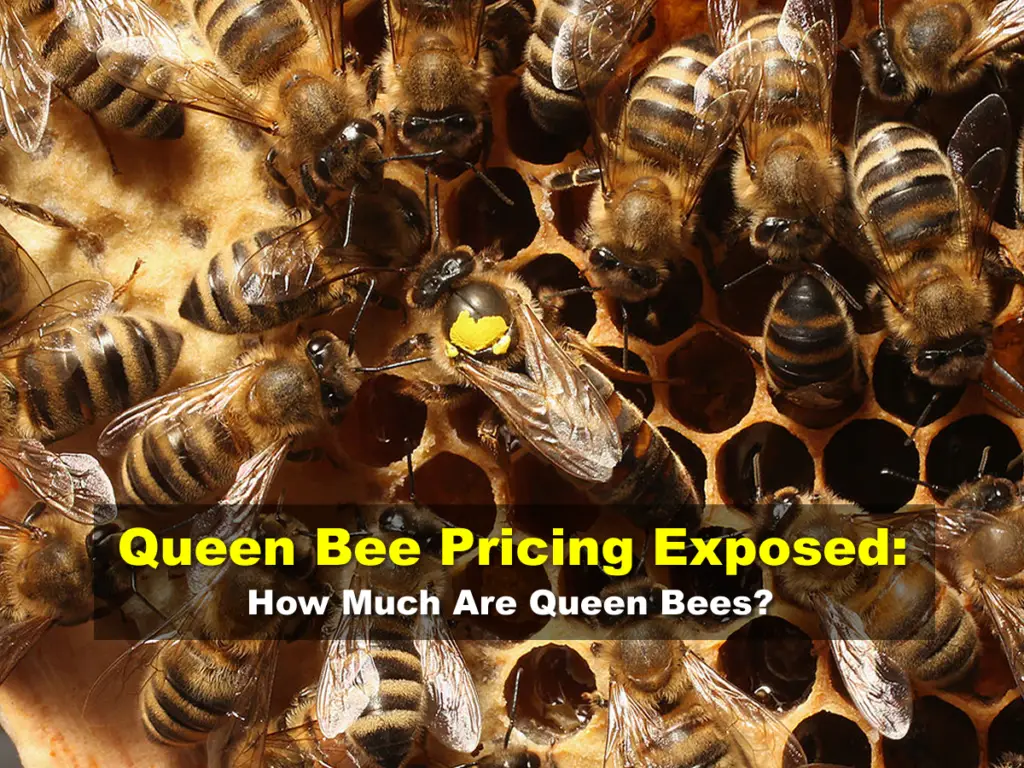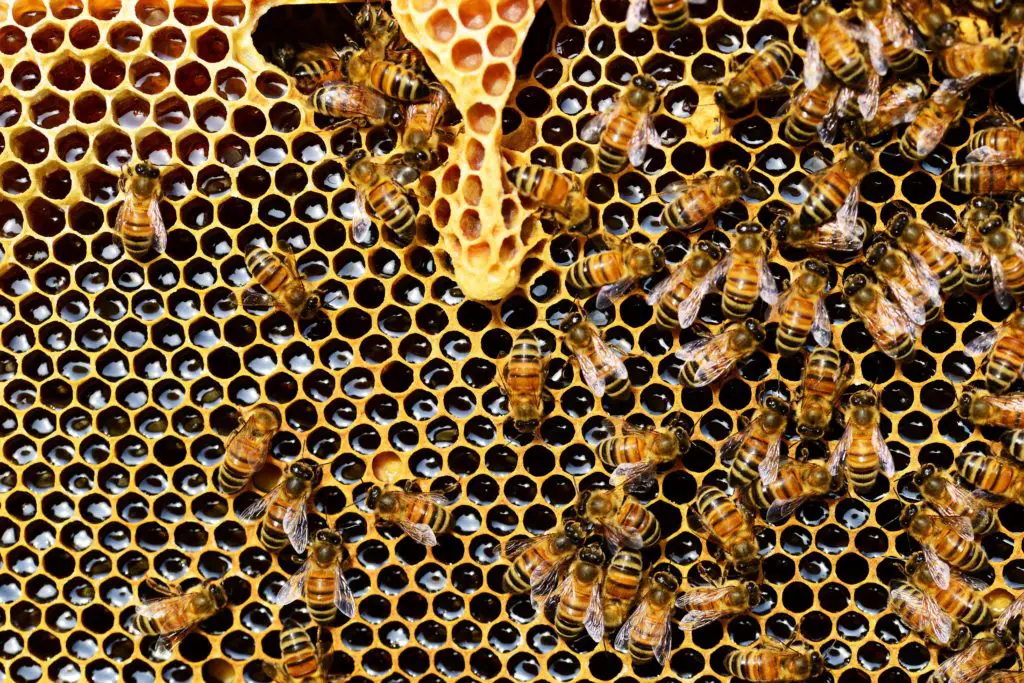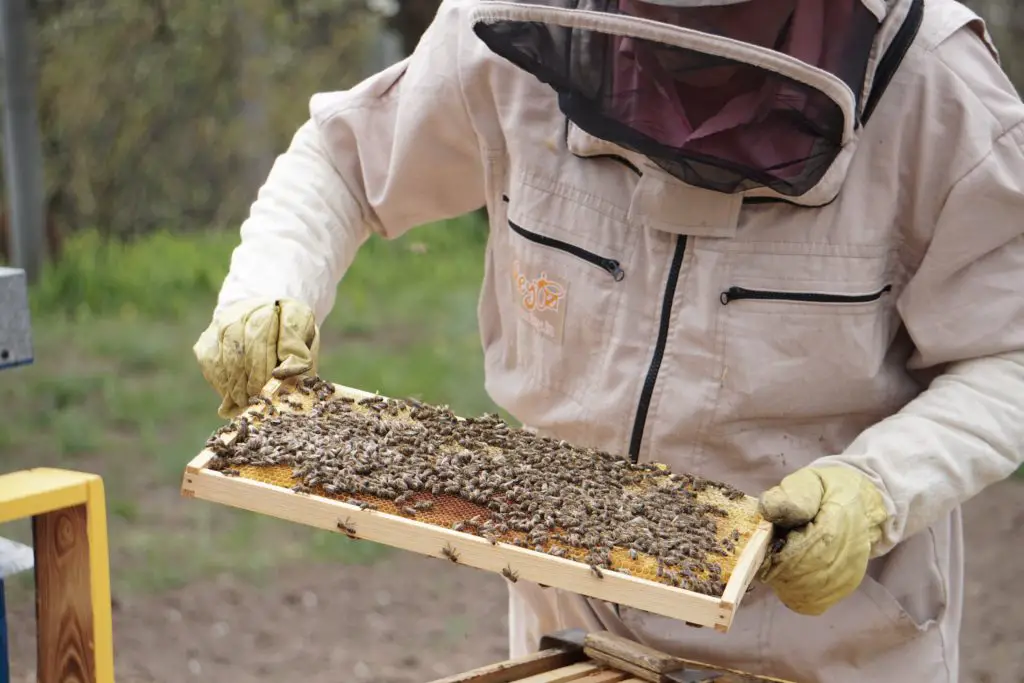Affiliate Disclaimer - As an Amazon Associate I earn from qualifying purchases.
It supports the website. So, Thank you
When you initially start beekeeping, there are a number of costs involved. It’s not the most expensive hobby to get going with but there is a small investment. One of the most important things you’ll need to think about is buying bees and even as you progress through your journey, you may need a replacement queen from time to time. But how much are queen bees to buy?
The cost of a queen bee might be anywhere between $25 and $40. However, this can be affected by several factors such as the bee’s genetics, how she was bred and even the species.
When looking to buy a queen, I would suggest going for one that potentially costs a little more because she is healthy and well-bred. This will ensure the survival of your hive as she’ll be in a much better position to lay healthy eggs.
Table of Contents
Do You Get A Queen In A Packet Of Bees?
One of the questions I get asked all the time is whether there’s a queen in the packet when you purchase bees. The answer is yes; your packet will come with a mated queen and when you break down the cost, she usually works out to be about $20.
When Do I Need To Buy A New Queen?
Taking care of your hive involves a lot of different things. One of these things is recognizing when it’s time to requeen. Keep in mind that there’s no reason to add a new queen for the sake of it. In fact, this could do more harm than good if there’s already a healthy queen in the colony.
You may have heard that commercial beekeepers replace their queens on a regular basis. This is true and they’ll often include this as part of the annual or bi-annual schedule. But the reason for this is that these setups often have hundreds of hives so it’s much harder to evaluate each one and determine whether a new queen is needed.
As a hobbyist, you have the chance to keep an eye on your hive(s) and work out when it’s time to add a new queen. It’s certainly beneficial to replace queens when they are getting old because they’ll stop producing as many viable eggs. What’s more, you may have a queen whose performance just isn’t what it should be, in which case, she should be replaced.
Another good reason to replace your queen is if the colony is suffering from a disease. When you add a new queen, there will be a small break in the brood cycle and when this happens, it’s usually enough time for any diseases to stop spreading.
Some people also look to add new hives and rather than buying an entirely new packet of bees, they will split an existing colony. This is fine but you will need a queen for the new hive.
What Determines The Value Of A Queen Bee?
As I mentioned at the beginning of this post, a new queen might set you back anywhere between $25 and $40. While this isn’t expensive, there’s a clear difference in price so what determines how much you’ll pay?
When bee eggs are laid, one of two things will happen; they’ll either be fertilized by the queen or a worker bee. Eggs that are not fertilized by the queen will become a drone whereas the others will be female. When females are in the larval stage, some of them may be fed royal jelly. This is a substance that bees use to raise new queens. It’s packed with nutrients which are produced by the nurse bees.
So, now you know where your queen comes from but what determines how valuable she is? Well, there are a few things at play here including factors such as health, breeding techniques and species. All of these things combined determine the quality of the bee’s genetics.
When it comes to buying a queen bee, one of the most important things to consider is her health. If she isn’t healthy then she won’t produce as many eggs nor be as productive which will be detrimental to the entire hive.
Bees that are in the wild will naturally select a queen when the time comes and this is usually down to age. However, when humans breed bees, we have to have a system that tells us the age of a queen which is why they’ll typically be marked. A system is used to code the queens and this tells you how old they are. When buying a queen, you’ll want to look for the youngest queens as these will be the healthiest and most valuable.
While there are several subspecies of the honeybee, there are eight main species and they all have different traits which can affect the value of the queen. Some traits are more desirable just as bees that are placid or those that are easily able to resist poor conditions. For this reason, I’d strongly recommend doing some research on the available species before making a decision.
It’s also a good idea to think about genetics when purchasing a queen bee. You’ll want to look at where the queen has come from. For example, is the colony free from disease and how productive is it?
Getting Value For Money
The cost of a queen doesn’t include shipping fees or any added extras so this is something to look at when comparing prices. But if you want to get a better deal then you could stay local. This is something that will benefit you throughout your entire beekeeping career as you’ll become part of a small community and this is where you’ll find the best value for money.
What’s more, it’s not uncommon for local beekeepers to trade items and produce for the things they need and this doesn’t exclude queens. So, if you have some surplus materials, it might be worth joining a local beekeeping community to see if anyone would be willing to trade a healthy queen.
I’d also recommend considering the time of year you purchase your queen if you want to save money. Buying a queen during the spring or at the beginning of summer will cost more as there is a higher demand during this time. Beekeepers are setting up new hives and many use this time of year to requeen their existing colonies. Move through into the late summer and the demand for queens drops significantly so you’re more likely to get a better deal.
Final Thoughts
Having a healthy queen is essential to the survival of your hive. Whether you’re just starting a new colony or you’re looking to requeen your hive, you need to know the value of a queen bee and what affects this.
When it comes to how much are queen bees, you’ll typically be looking at paying between $25 and $40. But be mindful to research the colony from which the queen has come and look at her traits, health and genetics to ensure you’re getting a bee that will be productive.




